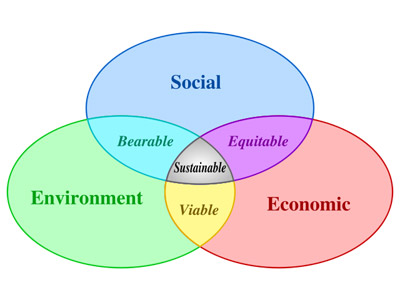
Yesterday, I wrote:
Part three proper requires some filling out, just like last week's part three, so it will have to wait.I don't feel like doing a lot of digging for this linkspam, so I just found one economics article for that empty section and decided to publish it. Yes, you get a meal of leftovers tonight, but feeding it to you all clears the way for a fresh linkspam of local news tomorrow, some videos I've been sitting on, and more coverage of stories I've been following, such as the ongoing saga of gas prices and the economy.
Time for the linkspam!
General Sustainability
Speaking from Carnegie Mellon University, President Obama discusses the vital role advanced manufacturing will have in strengthening our economy and creating good, middle-class jobs.President Obama was kind enough to provide a summary of the speeches I embedded in parts one and two. Thank you Mr. President for making things so convenient for me!
Environment, including science and technology
Science News: Modern-day sea level rise skyrocketing
Increase began with the Industrial Revolution
By Janet Raloff
Web edition : Monday, June 20th, 2011
Sea levels began rising precipitously in the late 19th century and have since tripled the rate of climb seen at any time in at least two millennia, a detailed analysis of North Carolina marsh sediments shows.In other words, the effects of increased carbon dioxide on sea level date all the way back to when global temperature began to increase more than 100 years ago. I wish I knew how to use this to stick it to the deniers. Any suggestions?
“This clearly shows the recent trend is not part of a natural cycle,” says Ken Miller of Rutgers University in Piscataway, New Jersey, who was not associated with the analysis.
American Chemical Society via physorg.com: 'Super sand' for better purification of drinking water (Update)
June 23, 2011
Scientists have developed a way to transform ordinary sand -- a mainstay filter material used to purify drinking water throughout the world -- into a "super sand" with five times the filtering capacity of regular sand. The new material could be a low-cost boon for developing countries, where more than a billion people lack clean drinking water, according to the report in the ACS journal Applied Materials & Interfaces.After living in California, where there wasn't enough water, to Michigan, where there is so much that people from outside the midwest want to pipe it away from us, I'm acutely aware of the importance of quality fresh water as a sustainability issue.
Researchers at Rice University are spinning a bit of nano-based magic to create "coated sand" that has enhanced properties for water purification. The breakthrough may benefit developing countries where more than a billion people lack clean drinking water.
Society, including culture and politics
University of Calgary (Canada) via physorg.com: Building a better math teacher: Math professor considers new ways to use what we already know
June 23, 2011
For years, it has been assumed that teachers -- specifically math teachers -- need to master the content they intend to teach. And the best way to do this is to take courses beyond that content.Yes, another teaching article. I teach, so I see the quality of education as a sustainability issue as well.
Yet in a paper published today in the Education Forum of the journal Science, Dr. Brent Davis of the University of Calgary says research does not support this common belief. There is little evidence that advanced courses in mathematics contribute to more effective teaching.
Economy
Reuters: StanChart says $10-12 billion clean energy funding on track
By Erik dela Cruz
MANILA | Thu Jun 23, 2011 7:22am EDT
Standard Chartered Plc is on track to mobilize between $10 billion and $12 billion of financing for the renewable energy market over the five years to the end of 2012, a bank official said on Thursday.Unlike the rest of this linkspam, this article wasn't used in Overnight News Digest: Science Saturday (Summer Solstice 2011 edition), although it's the kind of article I'd have used there. It's also the perfect one to close the circle, as it is about investment in technology to improve sustainability. I've closed smaller circles before.
"We're pretty much on runway," Brad Sterley, director of the bank's renewable energy and environmental finance team told a clean energy forum in Manila.
In 2007, the bank committed up to $10 billion under the Clinton Global Initiative for renewable and clean energy projects by 2012.
All four parts of the linkspam are now finished. Hurray!
No comments:
Post a Comment